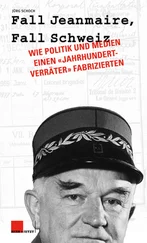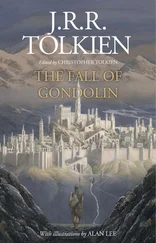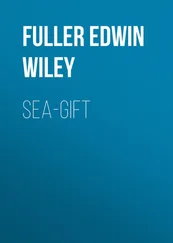Here was the point at which Fan’s knowledge of his past life ended, Penelope having gone no further in her postmeal tellings, and as they drove on, she found herself filling in possible details and events that had followed, glancing at Quig’s faraway glare and imagining what he must have been compelled to see, and possibly do, to arrive at this place in time. Had he witnessed the last moments of his wife and daughter? Had he killed a person, or two? Fan, being raised in our fashion, was not given to probing into others’ lives, at least not face-to-face, and so it was startling that she asked him right there, straight out, whether he could let her see a picture of his family on his handscreen.
He didn’t acknowledge her, or maybe he did; all the color had rushed out of his face. The muscles of his jaw were clenching, and now he worked the slow turns of a curvy descent with two hands instead of one. Of course, he knew people at the compound speculated about his past but gave no quarter.
If you don’t want to it’s okay, Fan said.
What’s it to you? he asked her, his voice, to her surprise, full of echo and ache.
I was just wondering, she said, which we must believe was the case. He must have, too, and not just because like everyone else he thought she was younger than she was. Fan was not one to say things for her advantage, even out there in the counties. Often she remained silent, but when she did speak, it seemed only forthright and sincere, which is why people responded to her in the way they did.
There was a long silence when only Loreen’s faint snoring could be heard.
But then he said: Yesterday was her birthday.
Your daughter’s?
He nodded.
How old would she be?
He gave a sighing half chuckle, like he wasn’t quite accepting the turn of this conversation, or maybe that it was happening at all.
And yet he offered: Twenty-five. Maybe just about to be married.
From the side of his sunglasses Fan could see his eyes, searching the empty road, blinking steadily.
Penelope told us she was a very pretty girl. With many talents, too.
That’s right, he said, the idea of this seeming to crumple him inside, the points of his shoulders collapsing just that bit. That’s right. After a while, he touched his handscreen in the compartment of the middle console and some classical music came on. It was a viola concerto by Bach, he told her, a piece his daughter was beginning to play quite well.
Was she going to perform it for the pageant?
He asked if Penelope had told her about all that and she nodded.
She was, he said. She wasn’t a prodigy like some of the girls but she was very good. She had a fine ear. And she played with real enthusiasm, like she was enjoying it. The judges always appreciated that.
There are no pageants in B-Mor.
I suppose not, he said. Can you do anything special?
I can swim.
That’s what I hear. You were a tank diver.
Yes. I can hold my breath for a long time.
Really?
Yes.
How long?
A while.
Show me.
She took a round of slow, deep breaths to prime her lungs and then she took a last one in and closed her mouth. She pinched her nose so he could see she wasn’t cheating. At first he kept his eye on the road like he wasn’t paying attention but soon enough he had unconsciously slowed down, waiting for the moment she would crack. But she just sat there, totally composed, the coloring in her face unchanging; in fact, it looked like she was about to fall asleep. He ordered her to stop. She couldn’t quite hear him, or at least immediately react, as she had entered that state whenever she was in the tanks a long time and aligned with the underwater rhythms, that quelled, half-alive feeling that was neither frightening nor fraught but rather strangely liberating, for the wanting of nothing, not even air.
Stop it now, she heard him say from an outer orbit, that’s enough, yet she was fine, not even close to done, and she was notching herself down another rung when he slapped her face.
I said that’s enough, he barked. Loreen momentarily roused but nothing else was spoken and she fell back to her dreams. He was pushing the car faster now. He was breathing fast himself, like he was running and running. Fan touched her cheekbone, more startled than scared. He hadn’t hit her hard but he had scraped her eye slightly and it was tearing and she dabbed it with her T-shirt sleeve.
You all right? he said after a pause, though not looking at her.
Yes, I’m fine.
You’re a good girl, he said, if sorrowfully.
Thank you.
Listen, do you want to drive again?
That’s okay.
I mean for real. We have a long flat stretch here and I think you can do it.
Okay.
He pulled over and they quickly switched, Fan moving the seat all the way up so she could reach the pedals. She put it into gear and started too slowly and then jerked them forward, but once they were under way, her driving was smooth and assured. Quig picked up his handscreen and restarted the viola piece, the music filling the vehicle.
This is a nice song, she said.
Yes, it is.
After a while, he tapped at his handscreen a few times and he held out a picture for her to see: it was Trish, standing with her mother post recital, the gleaming viola at her side.
You want to know about them? he said. I’ll tell you what happened. Do you want to hear it?
She wasn’t certain anymore if she did. But he was going to tell her anyway. And so she said yes.
And so Fan, driving, listened to the tale of those first days for Quig and his family. Despite the awful details, his telling must have helped her relax at the wheel, the way music can allow our instincts to take over the countless mechanical operations that you couldn’t possibly orchestrate if you had to think through each one. Perhaps it’s the same for a storyteller, the sound of one’s own voice caretaking this turn and the next, and allowing the full flow.
Like everybody, Quig told her, they had read about banishments and would not hear again about those people, and so the day they drove away from their village, Glynnis was terrified, feeling certain that it was their death sentence. She couldn’t stop weeping, these squalls welling up from her chest. Quig was scared, too, though he tried his best not to show it. What helped was that he was preoccupied, though of all the things he should have been worrying about or focusing on, such as where they would spend that first night, or how they would defend themselves if confronted (like all Charters, they couldn’t legally own any weapons), he simply couldn’t settle on whether he should be driving slow or fast, which speed would attract less attention and thus be safest. So he kept alternating, slowing down and then accelerating for arbitrary stretches, until Glynnis finally begged him to stop driving that way. This broke the looped chain of his thoughts, and soon enough he realized that it was probably best to proceed smoothly and purposefully, as if they were heading someplace specific. But when you consider it, one comes to understand how the question might have gripped him. For what do you do when you truly have no idea where you’re heading? At least a pet could revert to its instinct to hide and forage and defend itself and even kill, but what of a former Charter family with meager funds and mostly useless trading possessions (a toaster oven, a cocktail dress) and just a tankful of fuel? Of course, there was no possibility of being accepted into a production settlement like B-Mor (which is always restricted) or trying to gain residency at another Charter, as their banishment was in force system wide. Imagine yourself at the helm of a ship slingshot beyond the Earth’s pull, one course into the spectral chasm as likely as any other, all coordinates open but potentially full of peril, each completely unknown.
Читать дальше












